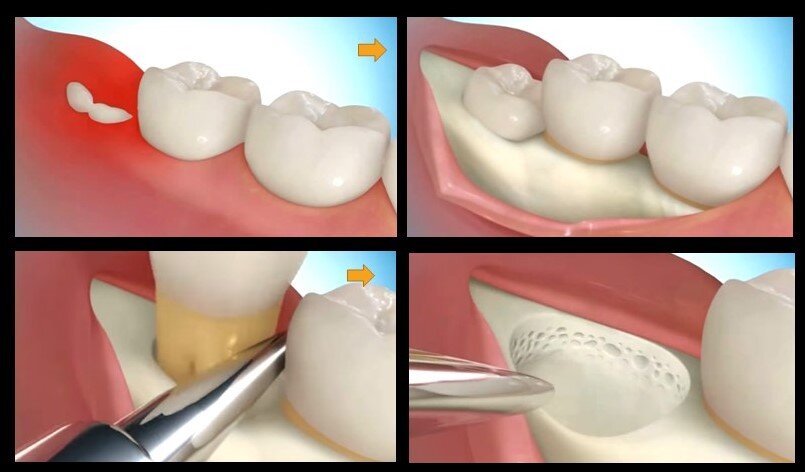Surgical Wisdom Tooth Extraction
Ideally, we prefer to save your natural teeth whenever possible. Unfortunately, this sometimes is not the appropriate solution and it becomes necessary to extract a tooth in order to protect the health of your other teeth. Some of the situations that may warrant an extraction include:
Severely broken or fractured teeth
Severely decayed teeth
Impacted wisdom teeth
Crowding
If alternative treatments like a root canal and crown or periodontal therapy will not be effective, it’s best to remove the tooth to prevent the spread of infection.
A wisdom tooth is extracted to correct an actual problem or to prevent problems that may come up in the future. When wisdom teeth come in, a number of problems can occur:
Infections
If a wisdom tooth gets infected, a patient may experience swelling, pain, an abscess, jaw stiffness and difficulty swallowing. Once the infection has been treated, the wisdom tooth will be removed.
Cyst
A cyst, or sack of fluid, can form around a wisdom tooth that hasn’t yet erupted. This can cause bone and gum degradation as well as damage neighbouring teeth.
Pain
The most common complaint is that a wisdom tooth is causing pain as it pushes through and into another tooth.
Ulcer
If a wisdom tooth erupts and begins to rub against your cheek it can cause painful ulcers.
Crowding
Sometimes there is not enough room to accommodate the new tooth and your other teeth began to push into each other and become misaligned.
Damage to nearby teeth
An impacted wisdom tooth may keep pushing against the molars next to it. This often leads to a serious damage to both teeth.
Two-thirds of the population will experience problems with wisdom teeth at some stage of their life.
Why you may require a surgical extraction
In some cases, the tooth may be covered by bone structure or gum tissue, which can make it difficult for the dentist to see. You could also have a damaged or broken tooth, making it impossible to remove without a procedure; there’s also a risk of neighbouring teeth and/or tissue becoming damaged.
How Much Pain Should You Expect?
You should not experience pain or discomfort when you are having a tooth extracted surgically. The dentist will have the area numbed before they begin the extraction, so the only thing you should feel during the process is the pressure, though no pain whatsoever. In a situation where your dentist suggests performing a tooth extraction surgically, it will be the quickest & most safe method to ensure there will be little to no trauma to the bone structure beneath the tooth.
Extraction Costs
Numerous factors can determine how the procedure and type of anaesthesia will affect your budget, so your dentist or will be there to evaluate your mouth and guide you along the way. The cost of a tooth extraction varies, depending on factors such as: the type of extraction & how complicated the extraction is.
Simple Extraction
Incisor from £185.00
Canine from £220.00
Premolar from £230.00
Molar Upper from £375.00
X-ray £12.00
Impacted Wisdom Upper
Visible Impacted From £550.00
Partial Impacted from £850.00
Covering Patients of Chester, Cheshire, Wrexham, North Wales, Whitchurch, Llandudno, Bangor, Ellesmere Port, Wiral, Flint, Mold
Complex/Wisdom Teeth
Difficult Extraction from £300.00
Surgical Extractions from £350.00
Upper Wisdom Tooth from £350.00
Lower Wisdom Tooth from £350.00
Impacted Wisdom Lower Jaw
Visible Impacted From £550.00
Partial Impacted from £850.00
Wisdom Tooth Extraction under IV Sedation
Removal by highly experienced dentist to minimise complications.
You will be sleeping (IV Sedation)
Parking Available for someone to take you home.
You wont remember a thing (sedation)
Weekend Appointments for surgery so back to work on Monday




